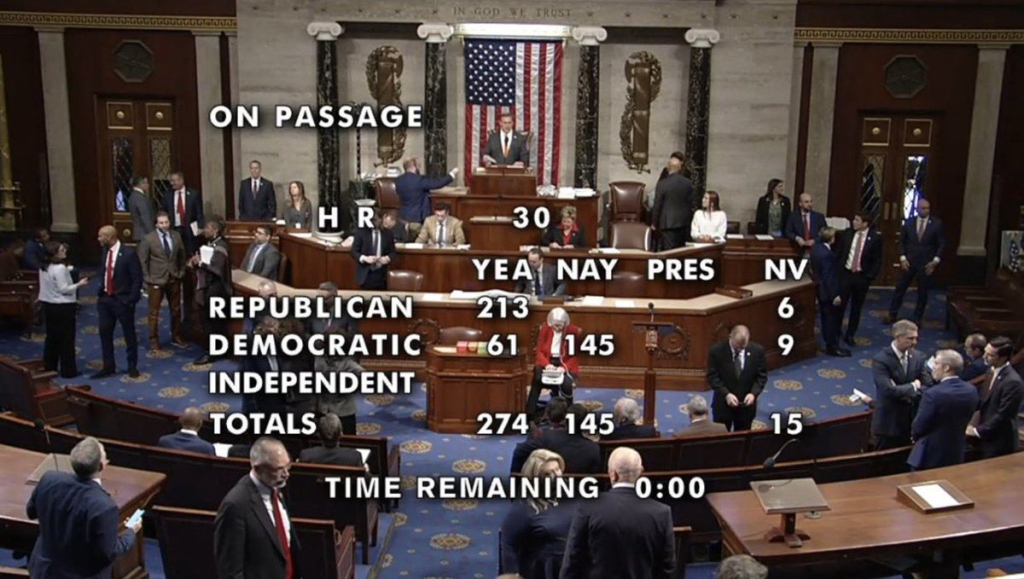
Please Follow us on Gab, Minds, Telegram, Rumble, Gettr, Truth Social, Twitter
Today, the House of Representatives voted 274-145 to pass H.R. 30, the Preventing Violence Against Women by Illegal Aliens Act.
The bill would establish certain criminal grounds for making non-U.S. nationals (aliens under federal law) inadmissible and expand the crimes for which a non-U.S. national is deportable.
The bill establishes that a non-U.S. national is inadmissible if the individual has admitted to or is convicted of acts constituting the essential elements of stalking, child abuse, child neglect, child abandonment, a sex offense, conspiracy to commit a sex offense, a violation of certain protection orders, or domestic violence (including physical or sexual abuse or a pattern of coercive behavior when it occurs within certain close relationships).
Next, the bill establishes additional grounds for deportation.
Under current law, a non-U.S. national is deportable for certain criminal convictions, including domestic violence, stalking, and child abuse. The bill makes any sex offense (including crimes against minors) or conspiracy to commit a sex offense a basis for deportation.
The bill also expands the domestic violence crimes that make a non-U.S. national deportable to include physical or sexual abuse or a pattern of coercive behavior when it occurs within certain close relationships.
Connecticut's all-democrat delegation split its votes, with Rosa DeLauro and John Larson both voting AGAINST protecting women, and Reps. Joe Courtney, Jahana Hayes and Jim Himes voting in favor of the act.
It's hard to imagine voting against the safety of women and children, especially considering that, for instance, recidivism rates for child molesters are not zero.
In fact, the U.S. Department of Justice (DOJ) published a research brief on recidivism rates for child molesters that showed 5.1 percent of the child molesters in the study were rearrested for a new sex crime within three years of their release, 14.1 percent were rearrested for a violent crime, and 39.4 percent were rearrested for a crime of any kind.
DOJ research further demonstrated that repeat offenders account for a disproportionate amount of crime and that offenders released from prison are arrested at rates 30 to 45 times higher than the general population.
According to the DOJ, "there is widespread recognition that recidivism has a direct impact on public safety" and that "this is particularly true with regard to crimes that are sexual in nature."
The NAY votes from DeLauro and Larson suggest that they are willing to roll the dice when it comes to the safety of women and children.
